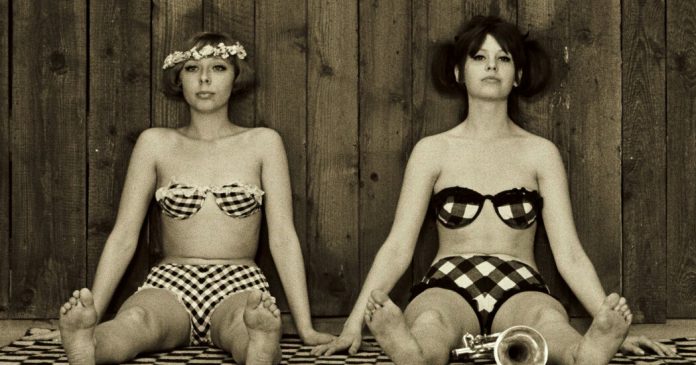The emergence of a cinematic new wave in Communist Czechoslovakia was among the many main movie tales of the late ’60s. Some examples, like Jiri Menzel’s Oscar-winning “Carefully Watched Trains,” had been rueful humanist comedies. Others, comparable to Jan Nemec’s immediately banned “Report on the Occasion and the Friends” had been anti-totalitarian allegories.
After which there was “Daisies,” directed by Vera Chytilova from Ester Krumbachova’s script. Newly restored, it opens Friday for a run on the IFC Heart in Manhattan.
First proven in New York in June 1967 on the Museum of Trendy Artwork, “Daisies” was dismissively reviewed by the New York Instances critic Bosley Crowther. As if channeling a baffled Czech apparatchik, Crowther pronounced the film “a pretentiously kookie and laboriously overblown mod farce about two playgirls who’re completely emptyheaded.” Play women maybe, empty-headed maybe not.
“Daisies,” the creation of two mature feminine artists, may alternately be described as an anarchic conspiracy that includes an insolent pair of untamed and loopy gals, decided to be as “spoiled” because the world.
With their singsong voices, obnoxious Woody Woodpecker chortles and clownish herky-jerky actions, Marie I (Jitka Cerhova) and Marie II (Ivana Karbanova), recommend two marionettes run amok, which is how they determine themselves. That they’re performed by nonprofessionals (one a scholar, the opposite a gross sales woman) and look like egging one another on offers the film a behavioral, if not documentary, subtext.
Without delay nubile and childish, the Maries are creatures of impulse and urge for food — primarily for meals and destruction. Making a picnic on her mattress, one assaults a repast of sausages, baguettes and bananas, wielding scissors like Harpo Marx in “Duck Soup,” then units alight some ornamental streamers with pyromaniacal glee. The spectacle they make of themselves disrupting the corny ground present and harassing the uptight patrons at a Prague nightclub with their desultory, drunken antics, is as humorous as something in “A Night time on the Opera.” Funnier, truly.
“Daisies” flouts cinematic conference all through. The insouciant visible razzmatazz may recommend an excessive model of a Richard Lester mod comedy, however the film is spiritually nearer to modern transgressive movies and happenings by artists like Carolee Schneemann, Yayoi Kusama and Barbara Rubin — work with which the cosmopolitan Chytilova was largely acquainted.
Nonetheless, because the backed product of a supposedly rational socialist order, “Daisies” is extra inherently political than one thing like Schneeman’s orgiastic “Meat Pleasure.” Chytilova’s film is a nihilist provocation from begin to end. Amongst different amusements, the Maries settle for dinner invites from middle-aged males of the exact type who may censor the movie. Like “Daisies” itself, they usually embarrass these stodgy authority figures with their shameless gold-digging and horrible desk manners.
Certainly, regardless of quite a few affronts to the patriarchal order, it’s the climactic meals struggle that appears to have most offended Czech authorities officers. In response to the movie historian Peter Hames, the Nationwide Meeting condemned Chytilova for losing meals at a time when farmers had been battling agricultural manufacturing.
“Daisies” was shelved, briefly launched after which, after the 1968 Soviet invasion of Czechoslovakia, banned once more. So, too, the director. Though ultimately capable of resume her profession, Chytilova by no means made one other movie fairly like “Daisies.” Neither has anybody else.
Daisies
Opens Friday on the IFC Heart in Manhattan; ifccenter.com.


